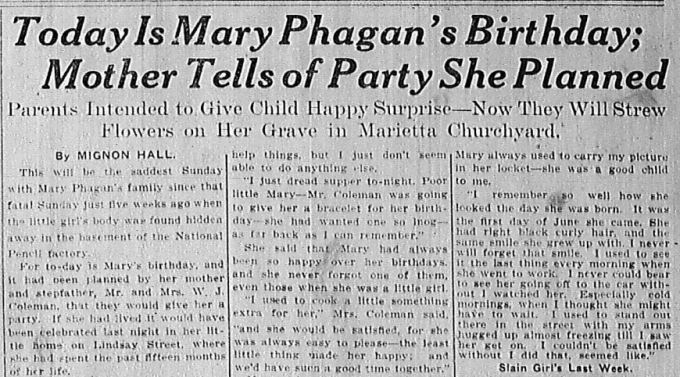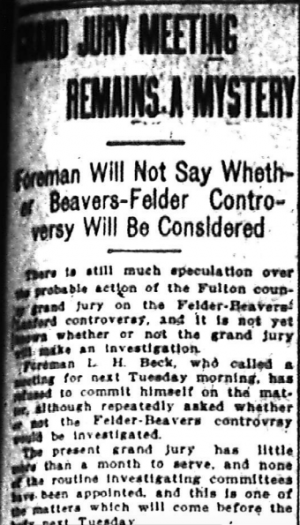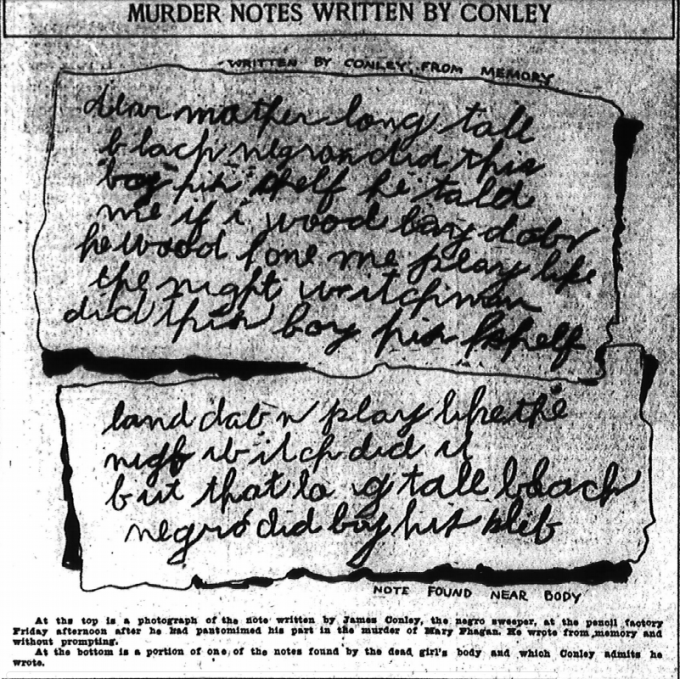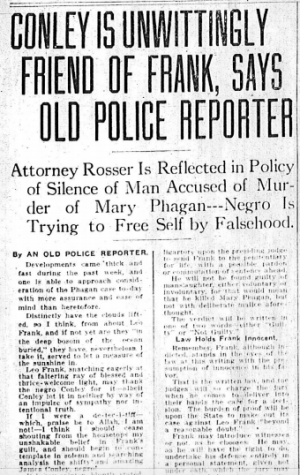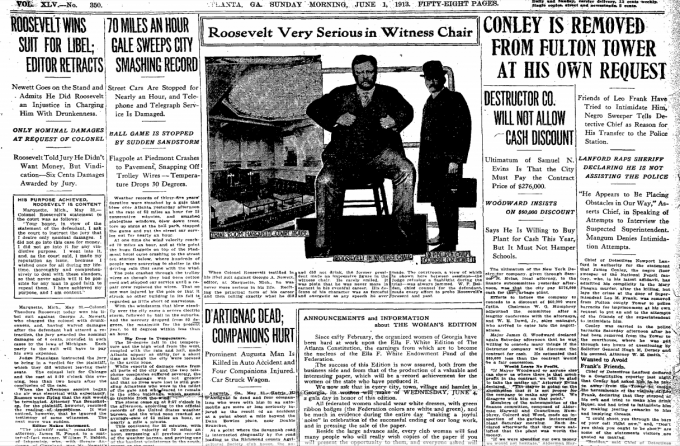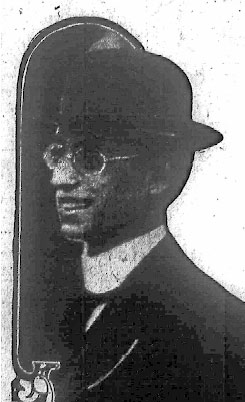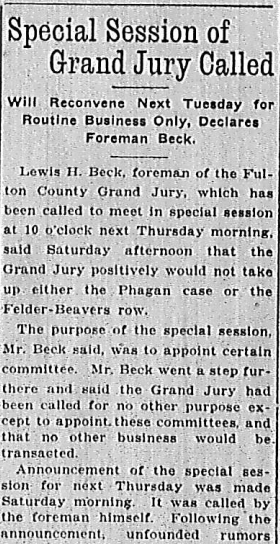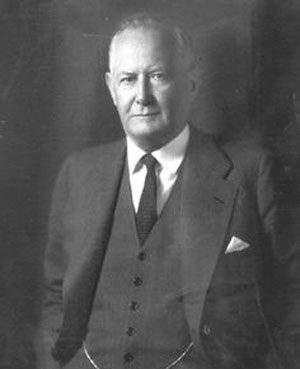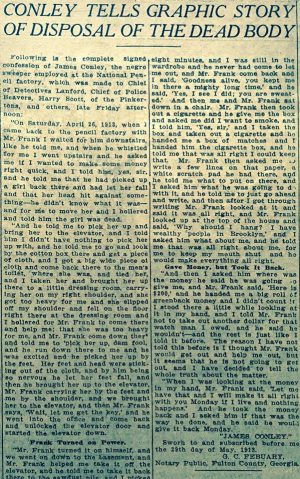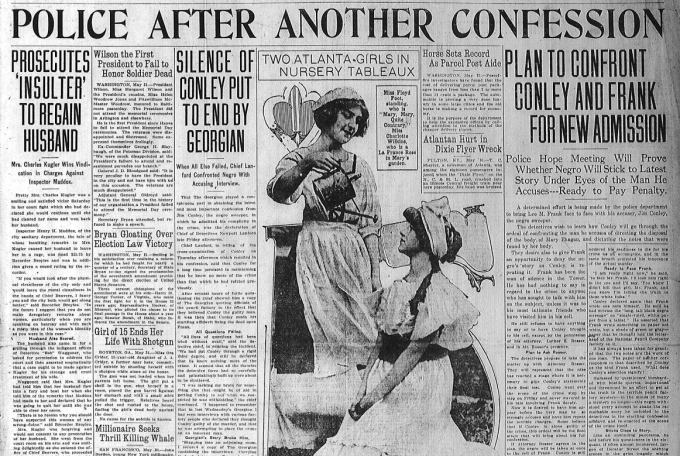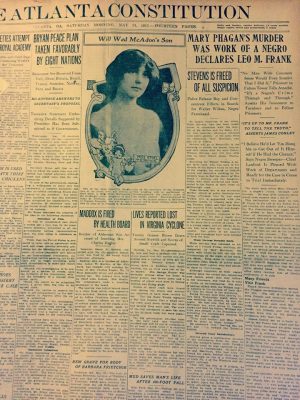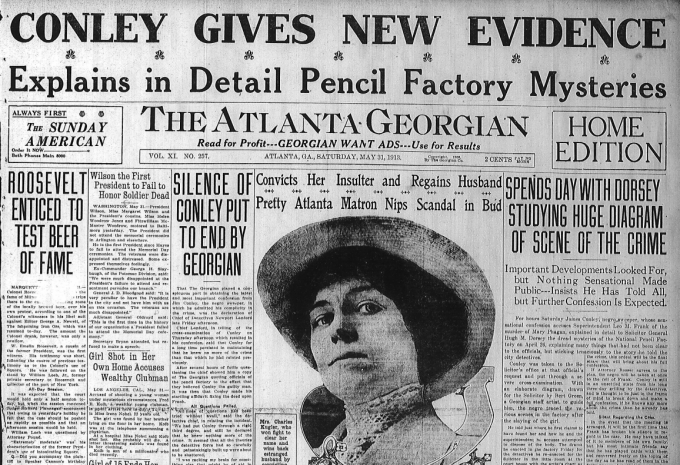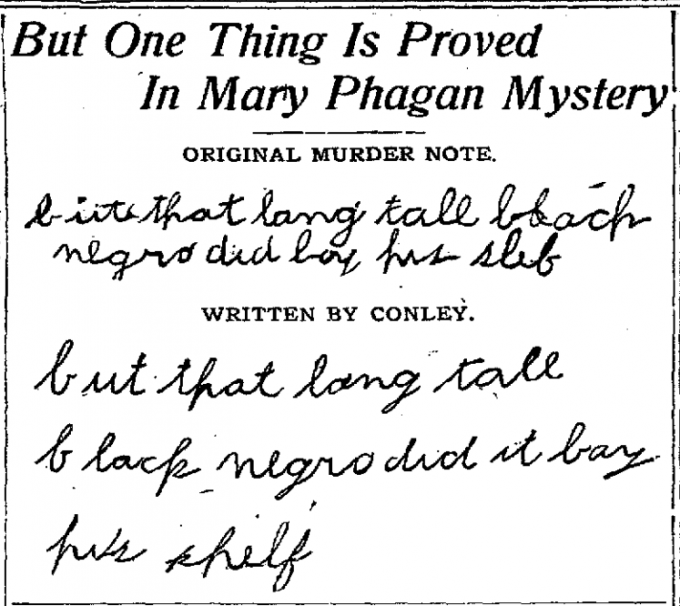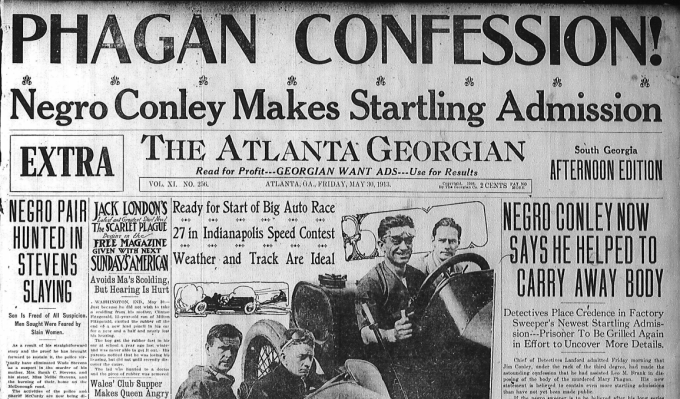Another in our series of new transcriptions of contemporary articles on the Leo Frank case.
Atlanta Georgian
Sunday, June 1st, 1913
Parents Intended to Give Child Happy Surprise—Now They Will Strew Flowers on Her Grave in Marietta Churchyard.
By MIGNON HALL.
This will be the saddest Sunday with Mary Phagan’s family since that fatal Sunday just five weeks ago when the little girl’s body was found hidden away in the basement of the National Pencil factory.
For to-day is Mary’s birthday, and it had been planned by her mother and stepfather, Mr. and Mrs. W. J. Coleman, that they would give her a party. If she had lived it would have been celebrated last night in her little home on Lindsay Street, where she had spent the past fifteen months of her life.
Instead of that, there is a shadow over the household, and she was spoken of with an ache in the throat and tears. Where last night would have been so happy for Mary, there was silence, and to-day the family expects to go to Marietta to weep above the little mound where she rests and lay flowers on the grave.
Was to Have Been a Surprise.
Mary’s birthday party, Mrs. Coleman said, was to have been a surprise, and as she told of it Saturday morning over the ironing-board—spoke of her other childish birthdays, the things Mary said and did, and all the tender little recollections of her a mother’s heart holds dear—her voice choked with sobs so that she could scarcely speak.
“It would have been the child’s first party,” she said simply. “The poor little thing never had had much in her life—she had to work so hard. It was Mr. Coleman’s idea. He thought it would be nice for her. He was like a father to her, anyway, and the only one she had ever known. Her own father died before she was born. Continue Reading →

